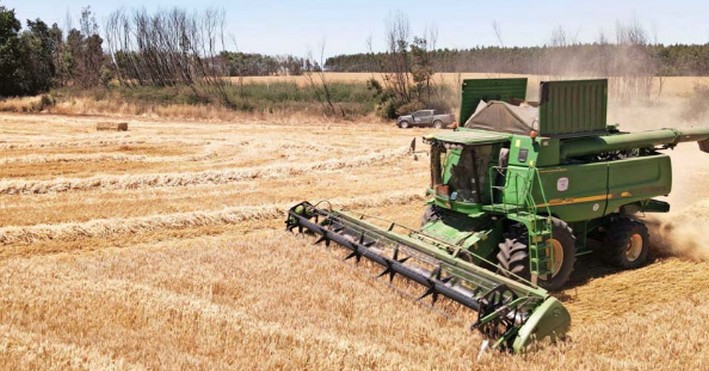- Productive sectors in the macrozone explain that companies seek both security and legal certainty, as well as less bureaucracy when deciding where to allocate their projects and resources.
In La Araucanía and Biobío, over the last three decades, there has been debate about the need to increase public and private resources and generate measures to boost productivity. However, the lack of security and control over violence is always cited as a barrier to new investments.
Patricio Santibáñez, head of the Multigremial de La Araucanía, an organization representing eight productive sectors, warns that "the process for companies to invest is slow; it doesn’t happen overnight." He adds: "Regarding violence in the southern macrozone, one observes that more security and legal certainty are still needed to ensure that this decline continues and does not flare up again."
"More than two years are needed"
The leader argues that "on one hand, there are the attacks, but there is also the situation of the large number of intentional forest fires that need to be clarified." He adds that "achieving security so people are not afraid to invest takes longer than two years—it’s a longer process because companies are not willing to lose their resources or see their assets and facilities destroyed, and that requires a high level of security."
Santibáñez emphasizes that the best proof of this will be when it can be confirmed that all terrorist organizations perpetrating violence have been dismantled and when it is demonstrated over a sustained period that they have ceased operations."
He also notes that "the excessive processing time to obtain authorizations and permits for developing projects due to bureaucracy also affects investment."
"People still need to gain confidence"
In the same vein, the president of the Malleco Farmers' Association, Sebastián Naveillán, agrees that "the main driver for securing investments in any area is security, and people still need to gain confidence in the southern macrozone and see that there is indeed greater control over crime."
He stresses that "we’ve had a state of emergency for two years, and since then, violent incidents have been decreasing, but they still occur, and for that reason, distrust in investing remains." He also agrees that "along with security and confidence, we also need clear rules of the game." Nevertheless, he highlights that the agricultural sector "has always been investing in the south, despite the violence and red zones."
"Forestry investments are moving to other countries"
The manager of the Association of Forestry Contractors, René Muñoz, believes that in his sector, investors do not see long-term signals that provide them with peace of mind and confidence. He details that they are investing in other countries in the region. "In Chile, there is less violence, but it is masked by other situations that prevent the certainty companies need to invest from emerging," he explains.
He points out that "today, corporate boards rule out investing in conflict zones, and in the macrozone, this problem has persisted for nearly 27 years without being controlled." He asserts that "when terrorist groups have taken control of Arauco and parts of Malleco and Cautín, it signals a lack of rule of law, so they prefer to take their investments to Uruguay, Argentina, or Brazil."
"Another obstacle is welfare dependency"
The president of the Corporation of Mapuche Professionals (Enama), Hugo Alcamán, believes that the slow arrival of private capital in La Araucanía has "another obstacle in welfare dependency."
In his analysis, "in the nearly 35 years since the return to democracy, and as a way to achieve peace, this area has become an excessively welfare-dependent region, where people rely too heavily on state support."
In his view, "there are few private initiatives willing to invest without state support, and this mentality may take decades to overcome and replace with an entrepreneurial spirit."
Source: subscription edition ofEl Mercurio







Comments (0)
No comments yet. Be the first to comment!
Leave a comment